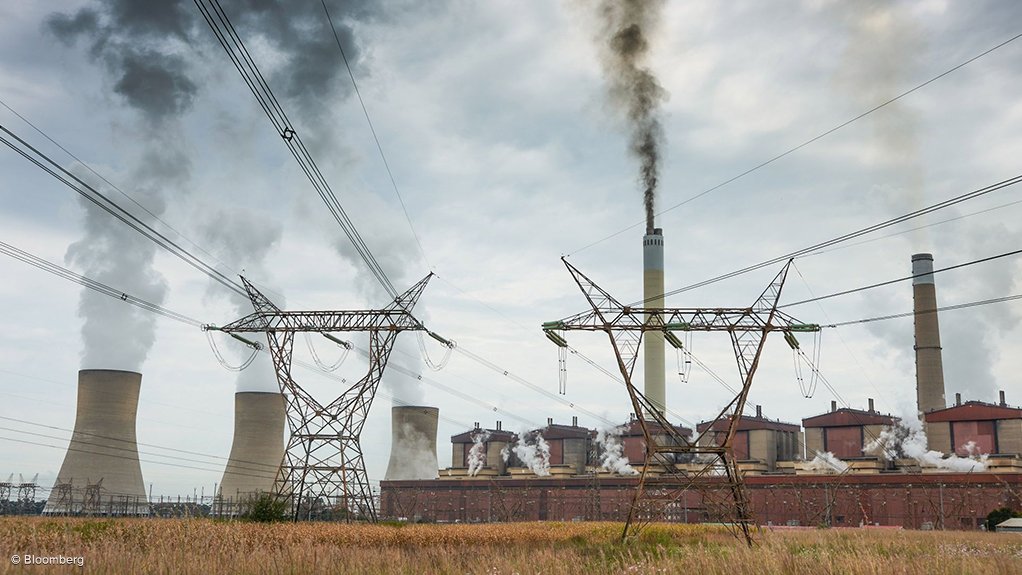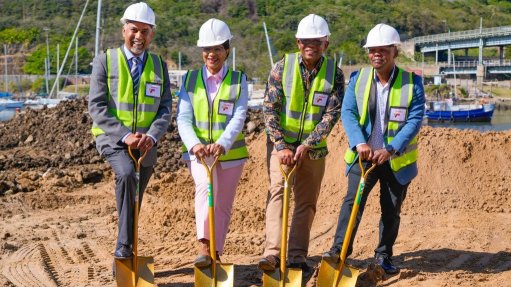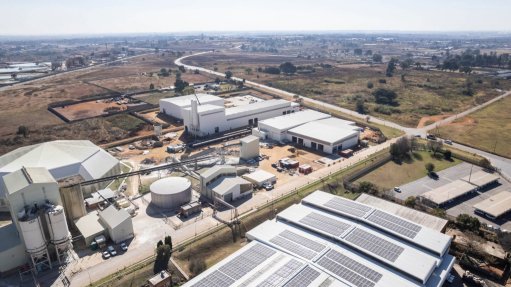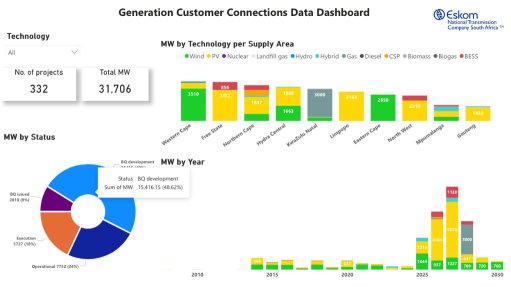New legislation good for business sentiment in South Africa – Mavuso
The continuation of policy reform in South Africa is an important factor for investors and two recent pieces of legislation signed by President Cyril Ramaphosa, namely the Climate Change Act and the Public Procurement Act, are both important for business, says business organisation Business Leadership South Africa (BLSA) CEO Busi Mavuso.
The Climate Change Act 2022 was signed into law on July 18, although it will come into effect on a date declared by proclamation.
“Within a year, the Department of Forestry, Fisheries and the Environment has to publish the greenhouse-gas (GHG) emitting sectors and subsectors that will be subject to sectoral emissions targets and allocate carbon budgets for emitters, who in turn have to submit a GHG mitigation plan.
“The legislation sets carbon reduction targets on a sectoral basis, thereby guiding industries and large emitters towards net zero, with the timing aligned with the carbon tax and carbon trading regimes. All industries that emit GHGs, including coal mining, must submit annual progress reports to the minister of forestry, fisheries and the environment,” Mavuso says.
Further, the Act makes it an offence if a business fails to submit a mitigation plan. It is also an offence to fail to provide the minister with information or fail to comply with emission reduction measures.
“However, what is missing from the list of offences is any consequence for a failure to achieve a carbon budget or sectoral emission target. This would, arguably, do the most to assist South Africa in achieving emission targets necessary to achieve net-zero.”
The Act goes beyond emission targets and establishes the Presidential Climate Commission as a statutory body and gives powers and responsibilities to all layers of government to manage emissions targets on a sectoral and subsectoral basis.
It also sets up an adaptation resilience fund and requires the State to undertake adaptation financing and resilience, which is extremely important given the expected increase in severe weather events owing to climate change, Mavuso notes.
“These steps are necessary on a global scale as we attempt to limit the increase in the earth’s temperature to 1.5 °C above preindustrial levels, first and foremost, to protect the planet for today’s children and future generations.
“However, from a South African perspective, there is much at stake if we don’t meet our Nationally Determined Contribution (NDC) targets, including, significantly, the $8.5-billion pledged in funding by international donors to support the country’s Just Energy Transition Implementation Plan,” she emphasises.
Environmental compliance is also important because it aligns the country with the EU Carbon Border Adjustment Mechanism that will introduce an import tariff on carbon-intensive products from 2026, she adds.
Meanwhile, a raft of amendments to the Companies Act were also approved, which address the issuing of new shares, providing financial assistance to subsidiaries and share buybacks.
These amendments also make it easier to disqualify directors, mandate remuneration disclosure and require all public and State-owned companies to prepare and present a remuneration policy for shareholders’ approval, which must include pay-gap disclosures listing the highest-paid and lowest-paid employees, Mavuso highlights.
Further, the Public Procurement Act is an ambitious piece of legislation that attempts to establish a single framework for sourcing, buying and paying for goods and services by all organs of State, with a strong emphasis on transformation. It establishes designated groups for preferential procurement, namely black people, women, people with disabilities, military veterans, youth, small enterprises and cooperatives.
“Despite its noble intent, there are serious concerns that local capacity may be insufficient to meet the Act’s local content provisions, particularly when it comes to manufacturing. There also appears to be a risk that a bidder that meets the Act’s requirements is accepted, even if the bidder is far more expensive than other bids,” she points out.
The legislation attempts to address weaknesses in the current procurement system and the endemic corruption in State tenders by funnelling all procurement centrally through the Finance Minister.
The framework applies to departments, constitutional institutions, municipalities, municipal entities and public entities. Procuring institutions will have to develop their own procurement policies.
“Whether that is sufficient to combat corruption remains to be seen. I encourage the new government to ensure the checks and balances that accompany tender assessment processes are thorough and efficiently enforced.”
The brisk pace at which legislation is being approved is encouraging to business, and is continuing post-elections, after the President signed numerous Bills before the elections on May 29.
“This is a welcome change from the lethargy we’ve been used to in the past,” Mavuso notes.
New appointments in key government departments are also generating a sense of excitement, with many announcing new plans or measures to accelerate implementation of existing ones.
While still facing many risks, the Government of National Unity so far does seem to be a vehicle capable of accelerating the country’s economic recovery, and investors are showing interest. South Africa's bonds have already returned 9.3% in dollar terms this year, more than any other local-currency sovereign debt.
In addition to the political trajectory, investors are also impressed with the improved energy security situation marked by reduced loadshedding while inflation and monetary policy are moving in the right direction, says Mavuso.
Article Enquiry
Email Article
Save Article
Feedback
To advertise email advertising@creamermedia.co.za or click here
Comments
Announcements
What's On
Subscribe to improve your user experience...
Option 1 (equivalent of R125 a month):
Receive a weekly copy of Creamer Media's Engineering News & Mining Weekly magazine
(print copy for those in South Africa and e-magazine for those outside of South Africa)
Receive daily email newsletters
Access to full search results
Access archive of magazine back copies
Access to Projects in Progress
Access to ONE Research Report of your choice in PDF format
Option 2 (equivalent of R375 a month):
All benefits from Option 1
PLUS
Access to Creamer Media's Research Channel Africa for ALL Research Reports, in PDF format, on various industrial and mining sectors
including Electricity; Water; Energy Transition; Hydrogen; Roads, Rail and Ports; Coal; Gold; Platinum; Battery Metals; etc.
Already a subscriber?
Forgotten your password?
Receive weekly copy of Creamer Media's Engineering News & Mining Weekly magazine (print copy for those in South Africa and e-magazine for those outside of South Africa)
➕
Recieve daily email newsletters
➕
Access to full search results
➕
Access archive of magazine back copies
➕
Access to Projects in Progress
➕
Access to ONE Research Report of your choice in PDF format
RESEARCH CHANNEL AFRICA
R4500 (equivalent of R375 a month)
SUBSCRIBEAll benefits from Option 1
➕
Access to Creamer Media's Research Channel Africa for ALL Research Reports on various industrial and mining sectors, in PDF format, including on:
Electricity
➕
Water
➕
Energy Transition
➕
Hydrogen
➕
Roads, Rail and Ports
➕
Coal
➕
Gold
➕
Platinum
➕
Battery Metals
➕
etc.
Receive all benefits from Option 1 or Option 2 delivered to numerous people at your company
➕
Multiple User names and Passwords for simultaneous log-ins
➕
Intranet integration access to all in your organisation





















